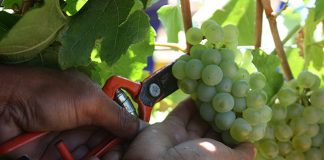
Photo: FW Archive
There is uncertainty about the impact the possible closure of the Edcon Group, which owns Edgars and Jet, will have on the local Sustainable Cotton Cluster (SCC), according to Hennie Bruwer, CEO of Cotton South Africa (Cotton SA).
The SSC, which was made up of cotton farmers, ginners, spinners, fabric producers, manufacturers and retailers, was established in 2014.
READ Cotton can be more profitable than maize!
According to Bruwer, about 40 to 50 commercial and small-scale cotton farmers formed part of the cluster. The SSC was strongly supported by government and was funded by an initial grant of R200 million from the Department of Trade and Industry.
Bruwer told Farmer’s Weekly that Jet and Edgars were two of four major retailers that supported the cluster, with the other two being Woolworths and Mr Price.
He said Edcon’s commitment to cotton lint produced by South African cotton farmers had increased from an initial demand of 600t of cotton lint to 2 500t over the past three years.
“If the group does not find buyers and therefore has to be closed, the cluster can suffer great damage.”
READ Know your crop pests: cotton stainer
However, Bruwer said Cotton SA was hopeful that the group would be bought out and said the association would work with the new owner to promote local cotton procurement.
He added that Cotton SA was also in talks with other retailers, including the Foschini Group, which were now looking to source cotton from local value chains.
As part of the national sector master plan for the retail, clothing, textile, footwear and leather value chain, South African retailers in the sector committed to increasing procurement of goods from South African manufacturers over the next decade.
Bruwer said that the aim was to increase local procurement from the current average of 45% to 63% by 2030.
“The possible closure of the Edcon group will put pressure on the remaining retailers and they will have to make a real effort to reach this goal,” he said.
Penias Gumede, vice president of Cotton SA and small-scale cotton farmer in the Makhathini Flats, said that the possible closure of Edcon was a matter of concern for all role players in the cotton industry.
“Down the pipeline there will be job losses on the farm with regards to farmworkers. However, the closure will not only affect the producers, but the whole cotton value chain,” said Gumede.











